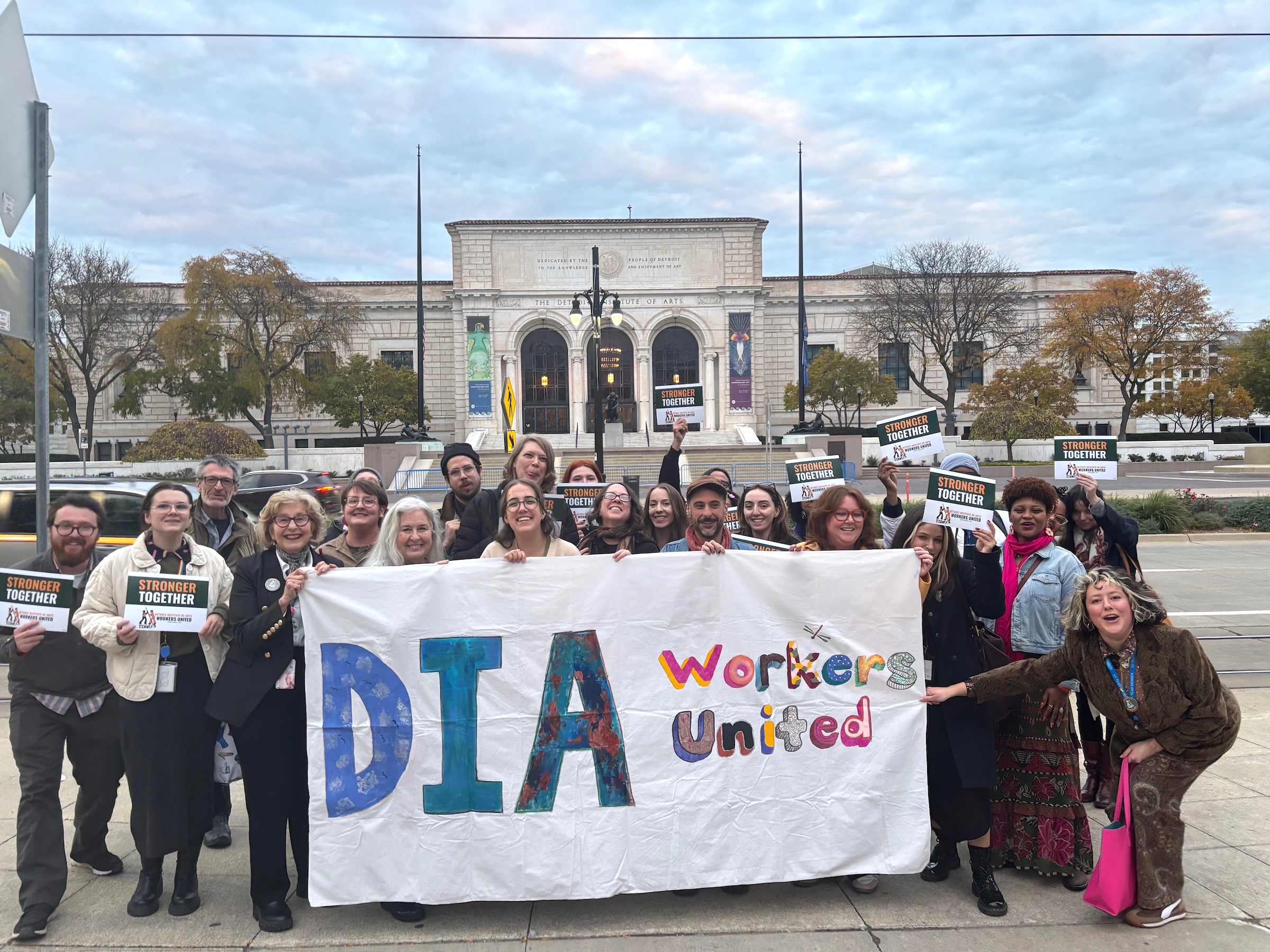UPDATE: Dozens of employees at the Detroit Institute of Arts (DIA) have just announced a significant push to unionize, seeking recognition through AFSCME Cultural Workers United. This development marks a growing trend among arts and culture institutions nationwide as workers advocate for better conditions.
On November 4, 2024, the group, now known as DIA Workers United, delivered a letter to museum management requesting formal recognition of their union. A spokesperson for AFSCME Michigan confirmed to Hyperallergic that efforts are underway for voluntary recognition, highlighting a positive relationship with the museum. They noted that the union represents a “strong majority” of workers, which is increasing daily.
Organizers, including Sarah Burger, a preparator with 20 years at the museum, reported that serious discussions about unionizing began late in 2024. “Almost every single department within the museum is being represented at this point,” Burger explained, emphasizing that staff are united by their love for the museum and their desire to secure better wages amid rising living costs in Detroit.
Burger, who has lived in Detroit for 25 years, expressed concern over escalating rents due to ongoing city development and revitalization. “I have been priced out of two neighborhoods,” she said, underscoring the financial strain on museum employees. Currently, the lowest wage at the museum is $16.50 per hour, with positions in visitor experience and security advertised at that rate.
While praising the museum’s growing endowment and stable operations budget from local tax initiatives, Burger pointed out that “in a financially secure institution, there’s no reason that full-time employees should be working a second job.” She called for fair compensation for all staff, stating, “The people at the ‘top’ ought to be compensated well, but those at the ‘bottom’ are also very important and all deserve to be getting a living wage.”
The urgency of this situation is compounded by claims that certain positions at the DIA have been left vacant for over a year, forcing employees in subordinate roles to take on additional responsibilities without appropriate titles or pay increases. “We don’t want this to be an ‘us versus them’ situation,” Burger noted, referencing the recent decline by the Los Angeles County Museum of Art to recognize its staff’s union.
“We want to work with [the museum], we want to negotiate,” Burger added. “If your employees are thriving, then the museum is really going to be thriving.”
As this situation develops, eyes will be on the DIA’s response to the union’s request for recognition and how they will address the pressing concerns of their workforce. This is a critical moment for cultural institutions as workers across the nation continue to seek better working conditions and fair compensation.
Stay tuned for further updates as this story unfolds.







